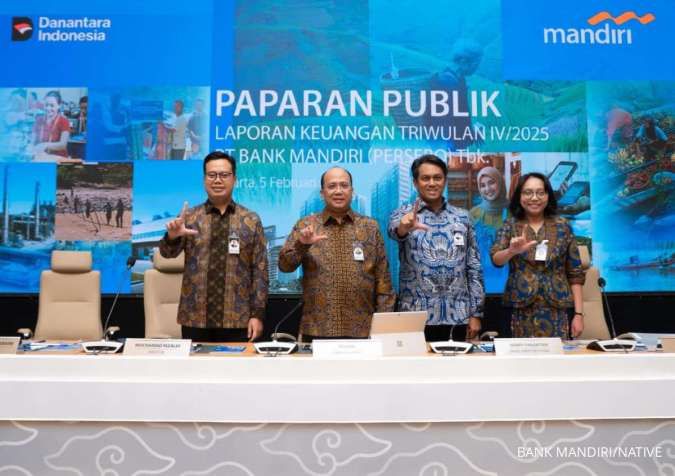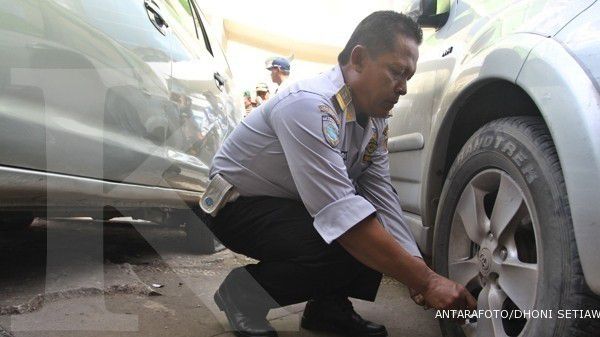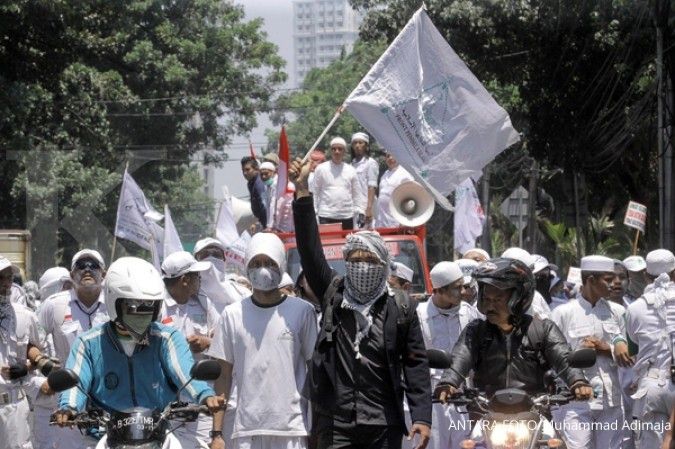JAKARTA. Factions at the House of Representatives failed to come to a decision on the much-disputed regional elections (Pilkada) bill as of Thursday night, as political parties tussled over a third, compromise, option on the amendment to direct elections. During the plenary meeting the parties refused to budge on the amendment, with the nine factions divided into two distinct camps: those seeking to maintain the direct election of regional heads, comprising the Democratic Party, the Indonesian Democratic Party of Struggle (PDI-P), the National Awakening Party (PKB) and the Hanura Party; and those who wish to return to the New Order system of local heads being selected by the Regional Legislative Councils (DPRDs), which comprise the Golkar Party, the Prosperous Justice Party (PKS), the National Mandate Party (PAN), the United Development Party (PPP) and the Gerindra Party. Despite the Democrats’ claim to be siding with public aspirations for a direct-election system, the party insisted on the adoption of its 10 points of improvement in return for the party’s support for the mechanism. In the evening, the party insisted on building a “third option” as a compromise between the two camps. Democrats deputy chairman Max Sopacua emphasized that its demands were non-negotiable. The draft version on the direct election of regional leaders has adopted nine of the Dems’ demands, but has excluded a requirement for a public review of candidates in order to eliminate the nomination of candidates deemed incompetent. “The authority to conduct the public review must be granted to the DPRDs,” Democratic Party deputy chairman lawmaker Max told the meeting. This condition has been rejected by a majority of lawmakers on a working committee tasked to deliberate the bill, as well as by the government, due to concerns about back-room deals. Although the Democratic Party kept reiterating its defense of democracy through upholding direct elections, its call for the public review appeared to contravene article 38 of the draft, which mandates Regional Election Commissions (KPUD) to establish an independent team of five members, comprising two academicians, two public figures and a KPUD member, to comprehensively assess candidates’ competence and track records. Unlike the Dems’ proposal, the article would not authorise the team to disqualify “incompetent” candidates but only to issue a “recommendation based on its assessment”. The public-review proposal by the Dems resembles article 16 of the other version of the draft prepared by the working committee on regional elections, which authorizes the setting up of a team to conduct a public review of members of local councils. The team would comprise three academicians and two public figures, who must report their assessment of candidates to political factions in the DPRDs, which would have the power to decide on the nomination of any candidates. “The [public review] team must report the findings to factions or a coalition of factions at the DPRD in order to be registered as candidates for governor/deputy governor, regent/deputy regent and mayor/deputy mayor,” says the article. On the sidelines of the meeting, Democrats’ acting chairman Syariefuddin “Syarief” Hasan, who was present to witness the voting process, highlighted the significance of legally mandating local legislators to determine candidates’ nominations based on their assessment. Syarief stressed “thus, the public review [of candidates] needs to be legitimized by the DPRDs”. Such an uncompromising demand by the Democratic Party forced House leaders to adjourn the meeting for more than five hours to allow leaders from the nine political factions to conduct a high-level lobby to discuss their deep divisions. On the sidelines of the lobby session, PDI-P executives had signaled their initial rejection of the Democrats’ proposal. “The Democratic Party holds the ace,” PDI-P senior politician Pramono Anung said. President-elect Joko “Jokowi” Widodo’s Gotong Royong Coalition, which backs direct elections, only has 139 out of a total of 560 votes in the House. If the Democrats support the coalition it would get an additional 148 votes, enough to uphold direct elections. Earlier in the day, rumors had it that Golkar would “bribe” Democratic Party lawmakers in exchange for their abstention in the vote in an attempt to reduce support for direct elections. Golkar deputy secretary-general Tantowi Yahya, however, denied the rumor. “It’s completely untrue. We never bribe.” (Margareth S. Aritonang)
House deadlocked on Pilkada
JAKARTA. Factions at the House of Representatives failed to come to a decision on the much-disputed regional elections (Pilkada) bill as of Thursday night, as political parties tussled over a third, compromise, option on the amendment to direct elections. During the plenary meeting the parties refused to budge on the amendment, with the nine factions divided into two distinct camps: those seeking to maintain the direct election of regional heads, comprising the Democratic Party, the Indonesian Democratic Party of Struggle (PDI-P), the National Awakening Party (PKB) and the Hanura Party; and those who wish to return to the New Order system of local heads being selected by the Regional Legislative Councils (DPRDs), which comprise the Golkar Party, the Prosperous Justice Party (PKS), the National Mandate Party (PAN), the United Development Party (PPP) and the Gerindra Party. Despite the Democrats’ claim to be siding with public aspirations for a direct-election system, the party insisted on the adoption of its 10 points of improvement in return for the party’s support for the mechanism. In the evening, the party insisted on building a “third option” as a compromise between the two camps. Democrats deputy chairman Max Sopacua emphasized that its demands were non-negotiable. The draft version on the direct election of regional leaders has adopted nine of the Dems’ demands, but has excluded a requirement for a public review of candidates in order to eliminate the nomination of candidates deemed incompetent. “The authority to conduct the public review must be granted to the DPRDs,” Democratic Party deputy chairman lawmaker Max told the meeting. This condition has been rejected by a majority of lawmakers on a working committee tasked to deliberate the bill, as well as by the government, due to concerns about back-room deals. Although the Democratic Party kept reiterating its defense of democracy through upholding direct elections, its call for the public review appeared to contravene article 38 of the draft, which mandates Regional Election Commissions (KPUD) to establish an independent team of five members, comprising two academicians, two public figures and a KPUD member, to comprehensively assess candidates’ competence and track records. Unlike the Dems’ proposal, the article would not authorise the team to disqualify “incompetent” candidates but only to issue a “recommendation based on its assessment”. The public-review proposal by the Dems resembles article 16 of the other version of the draft prepared by the working committee on regional elections, which authorizes the setting up of a team to conduct a public review of members of local councils. The team would comprise three academicians and two public figures, who must report their assessment of candidates to political factions in the DPRDs, which would have the power to decide on the nomination of any candidates. “The [public review] team must report the findings to factions or a coalition of factions at the DPRD in order to be registered as candidates for governor/deputy governor, regent/deputy regent and mayor/deputy mayor,” says the article. On the sidelines of the meeting, Democrats’ acting chairman Syariefuddin “Syarief” Hasan, who was present to witness the voting process, highlighted the significance of legally mandating local legislators to determine candidates’ nominations based on their assessment. Syarief stressed “thus, the public review [of candidates] needs to be legitimized by the DPRDs”. Such an uncompromising demand by the Democratic Party forced House leaders to adjourn the meeting for more than five hours to allow leaders from the nine political factions to conduct a high-level lobby to discuss their deep divisions. On the sidelines of the lobby session, PDI-P executives had signaled their initial rejection of the Democrats’ proposal. “The Democratic Party holds the ace,” PDI-P senior politician Pramono Anung said. President-elect Joko “Jokowi” Widodo’s Gotong Royong Coalition, which backs direct elections, only has 139 out of a total of 560 votes in the House. If the Democrats support the coalition it would get an additional 148 votes, enough to uphold direct elections. Earlier in the day, rumors had it that Golkar would “bribe” Democratic Party lawmakers in exchange for their abstention in the vote in an attempt to reduce support for direct elections. Golkar deputy secretary-general Tantowi Yahya, however, denied the rumor. “It’s completely untrue. We never bribe.” (Margareth S. Aritonang)




